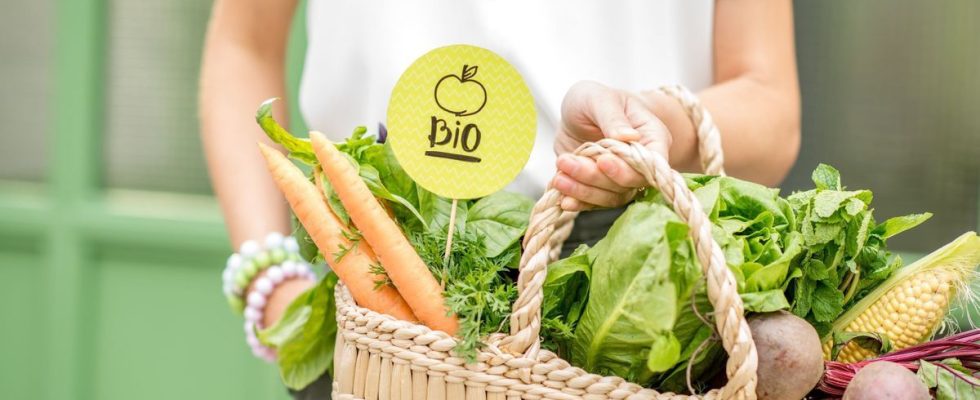Published on
Updated
Reading 2 mins.
The share of organic food products in the shopping basket of French people has fallen from 6.4% to 6% in 2022, the Agence bio said Thursday during a press conference, illustrating the crisis that the sector is going through with a “urgent” need to relaunch the request.
The share of organic in purchases fell in a context of “unprecedented decline” in household food consumption at home (-5.1%), which saw their purchasing power shrink due to inflation.
In comparison, the share of organic exceeds 10% in the shopping carts of other European countries such as Denmark or Austria, which have “very proactive” policies, underlined Laure Verdeau, director of this agency in charge of development and the promotion of this mode of agriculture.
Sales of organic products for home consumption, which represent 92% of outlets in the sector, in value fell by 4.6% last year, standing at 12 billion euros.
“The biggest drop affects the 3,000 organic stores, with a drop in attendance and nearly 200 closures“, said Ms. Verdeau. Their sales fell by 8.6%, and those of large retailers by 4.6%.
Conversely, the 26,000 organic farms, “which combine organic and local, are growing” she added, with sales up 3.9%.
In 2021, sales of organic products intended for home consumption (supermarkets, farm sales, etc.) had already fallen by 1.4%, a first drop since 2010.
Sales of organic products for out-of-home consumption, for their part, increased by 17% in 2022, the first year of full recovery for restaurants after the Covid-19 pandemic.
The share of organic food remains stable in collective catering with 7% of purchases – still far from the 20% target set in 2018 in the Egalim law – and falls from 2% to 1% in commercial catering, for which ” everything remains to be done,” said Ms. Verdeau.
“The market is driven as much by supply in the fields as by demand on the plates“, she commented, underlining the “urgent” need to revive consumption.
To help organic farming get through this growth crisis, the Minister of Agriculture announced in mid-May a “crisis envelope” endowed with 60 million euros.
